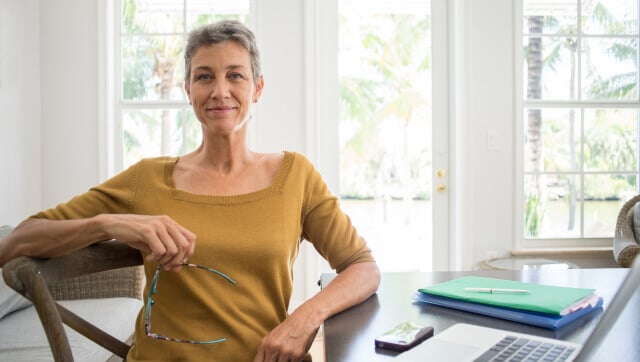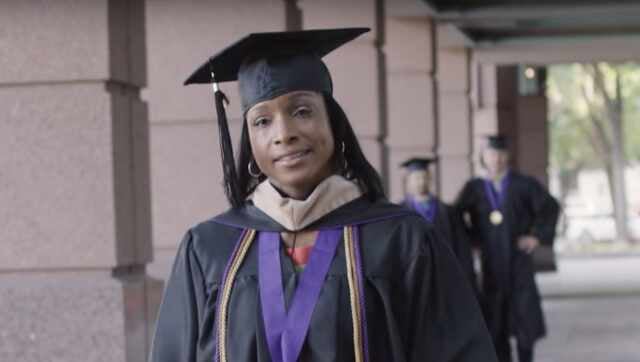Business

Which degree is right for you? MBA vs MS in Human Resource Management
April 10, 2024

How organizations can walk the talk when it comes to work-life balance
November 05, 2019

Ten questions with Capella human resources faculty chair Shelley Robbins, PhD
October 31, 2014
Business of Health Care

Triple aim: strategies to create a new health care model that works
December 19, 2018
Career

Tell it like it is – honesty in communicating organizational culture
December 27, 2019

Job interview basics: how to answer common interview questions with confidence
November 12, 2019

How organizations can walk the talk when it comes to work-life balance
November 05, 2019

Ten questions with Capella human resources faculty chair Shelley Robbins, PhD
October 31, 2014
Competency-Based Education

The relationship between competency-based education and direct assessment
November 08, 2017
Counseling

Marriage and family therapy & social work degrees: How to tell the difference
October 03, 2023

How counseling is changing to meet the needs of today’s older adults
November 18, 2019

Help youth succeed in school and life with a behavioral health degree
August 02, 2019

Collaborative efforts in counseling, clinical psychology, and social work
June 28, 2019

Transforming lives: making a career as a marriage and family therapist
March 29, 2019

Collaborative efforts in counseling, clinical psychology, and social work
August 21, 2018

10 questions with Capella counseling faculty member Benjamin Noah, PhD
April 14, 2015

Ten questions with Capella counseling faculty member Leslie Korn, PhD
December 11, 2014
Cybersecurity
Education

Professional development for teachers: taking EdTech to the next level
August 23, 2017

Ten questions with Capella education faculty member Dana Sparkman, PhD
October 14, 2015

In the field: how K-12 teachers are using technology in the classroom
September 21, 2015
Health Sciences

Administration or management: guide to bachelor’s degrees in health care
May 07, 2019

Triple aim: strategies to create a new health care model that works
December 19, 2018

What you need to know about the Merit-based Incentive Payment System (MIPS)
November 15, 2018

Generational differences in public health and health administration
February 21, 2017
Information Technology

Three strategies for career success in an artificial intelligence-driven world
December 12, 2018

Announcing Capella University’s 2018 women in analytics scholarship winners
September 17, 2018

4 areas of interest at the intersection of technology and health care
February 07, 2018

Capella and SAS announce 2017 scholarships for women in analytics
September 18, 2017

Capella VP takes unlikely path to career in data analytics and business strategy
May 01, 2017
Inside Capella

Four benefits of speaking with a Capella student before you enroll
October 21, 2018

Capella faculty member and astronomer suggests answer to 4 billion-year-old paradox
March 09, 2017
News

Capella University earns approved education provider status from NAADAC, the association for addiction professionals
March 15, 2019

Nurses talked. We listened. Introducing Capella University’s RN-to-BSN FlexPath learning format
October 01, 2015
Nursing

7 ways Sigma Theta Tau International Honor Society membership benefits nursing students
August 12, 2024

Passing the torch: how nurse leaders can support the next generation
October 25, 2019

Flexibility for a busy lifestyle: an RN to MSN journey with FlexPath
September 15, 2019

OADN executive shares the value of continued education in nursing
November 02, 2018

Advisory board puts Capella at forefront of nursing and health care education
February 15, 2017

Capella students and graduates share their advice for future students | Competency-based education
November 23, 2015

I didn’t go back…I found my way forward: Tarishia’s FlexPath story
October 09, 2015

Ten questions with Capella nursing faculty member Linda Matheson, PhD
April 03, 2015
PhD Doctorate

The PhD sisters: encouragement for women earning doctoral degrees
February 28, 2017
Public Service
Psychology

How counseling is changing to meet the needs of today’s older adults
November 18, 2019

Help youth succeed in school and life with a behavioral health degree
August 02, 2019

Collaborative efforts in counseling, clinical psychology, and social work
June 28, 2019

Collaborative efforts in counseling, clinical psychology, and social work
August 21, 2018

The future of education is gaming, says educational psychology faculty member
April 19, 2016

Ten questions with Capella counseling faculty member Leslie Korn, PhD
December 11, 2014
Student and Alumni Stories

Transforming lives: making a career as a marriage and family therapist
March 29, 2019

What you need to know about the Merit-based Incentive Payment System (MIPS)
November 15, 2018

Capella PhD student shares 4 tips on enhancing your social media presence
March 01, 2017

The future of education is gaming, says educational psychology faculty member
April 19, 2016

Four can’t miss EdTech conferences (and one unconference) for K-12 educators
July 15, 2015





















































































































































































































































































































